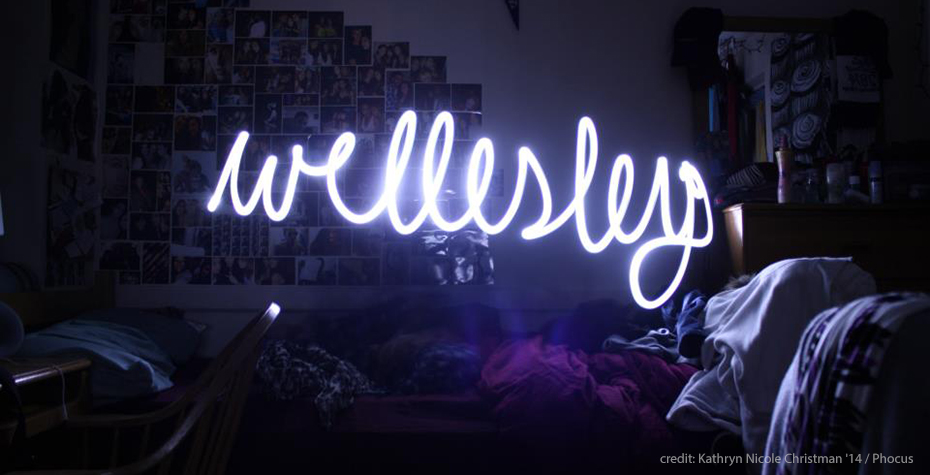Orgs Fair is Scheduled for September 11; Learn About 5 Newly Constituted Student Orgs

With students arriving on campus and classes beginning next week, Wellesley's 150-plus student-run organizations are getting ready for the Orgs Fair, scheduled for September 11. This is the event where orgs and clubs set up shop on Severance Green, talk to peers about their mission and activities, and recruit new members by bribing them with free candy and puppies (we’re kidding -- just candy).
This year, five of those organizations will be celebrating their new status as constituted orgs: Chamber Music Society, Neuroscience Club, Phocus, The Globalist and WCTV.
While all student organizations are encouraged to contribute to campus life, constituted orgs gain official acknowledgment and special privileges such as receiving funds from the Student Organization Funding Committee (SOFC), official recognition in College Government publications, use of college facilities for meetings, the use of Google Groups, and participate in the activities fairs. In order to become constituted, the group has to demonstrate that they fulfill a unique, unmet need in the Wellesley community through writing proposals and making presentations to their peers in the Student Organizations and Appointments Committee (SOAC). Groups have typically been active for several semesters before succeeding in the constitution process.
With 60-plus members Chamber Music Society is the largest performance group on campus, says co-president Anita Li ’15. Musicians are organized into smaller chamber ensembles, which practice throughout the week and are coached regularly by a music faculty member. “We are geared toward both serious and non-serious student musicians who would like acquire chamber ensemble skills,” says Li, who serves as co-president with Jane Qu ’14. “The experience is entirely different from performing solo or large ensemble.” This fall, CMS is particularly excited about collaborating with other campus groups for the annual CMS Marathon, date TBA.
Neuroscience Club, headed this year by Hande Piristine ’14 and Andrea Bae ’14, is celebrating a renaissance after a dormant period, thanks to the efforts of dedicated seniors last year. Piristine said, “Neuroscience club not only coordinates lectures and talks with faculty, and advertises them to the student body, but it also aims to bring Neuroscience majors of different years together.” The interdisciplinary Neuroscience program has grown in popularity for students exploring a variety of career paths since its founding in 1999.
The Globalist is an undergraduate magazine that engages Wellesley students in a discussion of contemporary issues in politics and culture on a particular theme, such as “Women in Revolutions” in 2012. The magazine is part of a larger network of publications called Global 21. This fall, says editor-in-chief Dana Al-Jawamis ’14, “We plan to participate for the second year in regional conferences, exchange articles with other chapters around the world, and produce yet another intriguing, engaging and thought-provoking publication.” The Globalist welcomes new members in a variety of roles.
Phocus is the aptly named campus photography club, whose purpose, says president Naureen Mazumdar ’14, is “to engage the entire Wellesley community with photography and to use photographic art as a medium to connect and express different visions, interests and perspectives. Phocus' unique approach is to provide a forum in which students can discuss and learn about photography, and use photographic equipment without taking a photography course.” Phocus is open to both experienced and new photographers. In the fall, says Mazumdar, the club will organize its annual student photography exhibition, invite professional photographers to speak on campus, and host a variety of workshops including a weekend-long photography bootcamp.
WCTV is the campus television show featuring news, interviews and commentary, as well as satirical humor through its subsidiary Boobtube (“Think a mix of SNL and Colbert,” we’re told). Executive producer Hailey Lee ‘14 explains the appeal of working on WCTV: “In a liberal arts school, students may take theoretical classes in media studies and micro-analyze the news in 4 different ways in an essay, but before WCTV, there were no long-term opportunities on campus to be involved in the production of a professional TV show.” The WCTV team dedicates hours each week to writing, planning and filming the biweekly episodes. However, Lee says, the time and effort is worth it because “there is a great sense of family and accomplishment at WCTV. After our two weeks of production is over, and we have a completed episode to share with the campus, it's a great feeling to come together and say, 'We did it.'”
